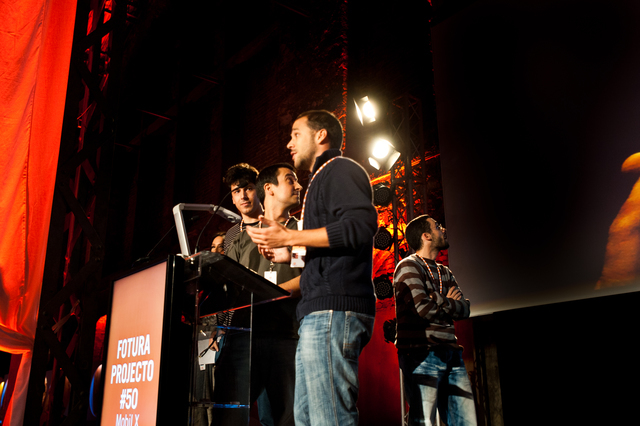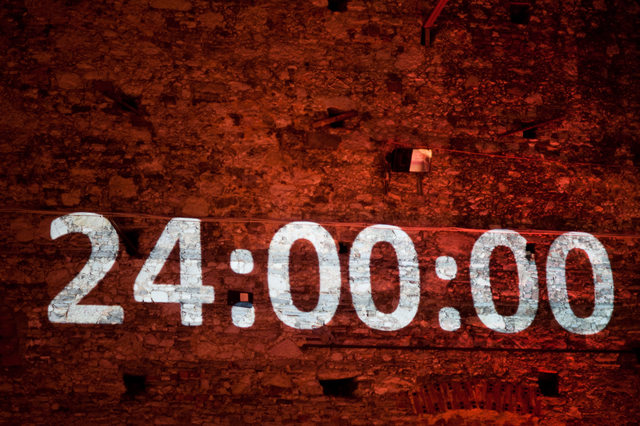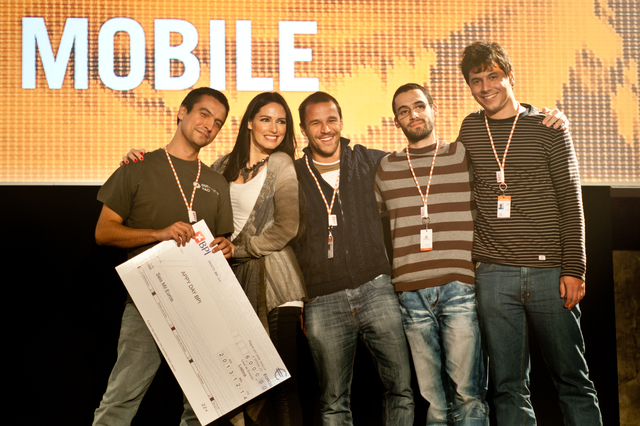How our mobile app, built in 24 hours, got a 2nd place and what we could've done even better.
In 2013 a bank in Portugal named BPI organized a contest called BPI Appy Day where 400 teams of up to 4 players tried to create a mobile app in 24 hours. The team I ran with produced an app got a nice 2nd place.

However, at the time I felt like a lot of the teams that were participating were following a bad strategy for this kind of contests. This post is due since then.
Hackathons are seen as programming contents, but some couldn't be further away from that. Programming contests usually have a very limited scope that requires quite a bit of technical ability and the entries are usually code. In a lot of hackathons nowdays, the entries are apps, which is quite different. Sure that there are hackathons very technical in scope, but many of them nowdays aren't much about tech as they are about enterpreneurship.
Winning such competitions isn't as much about devising the most technically awesome solution as it is about selling your app's main idea. Note that this isn't even selling the app but rather selling the idea that it addresses. This isn't much different from pitching any other product in Shark Tank — the details of how the product was made aren't nearly as important as if the opportunity that the product addresses is real.
The rules for selling ideas have a lot of literature of their own, but here's my own summary of rules:
- Focus on the idea — remember that's the use-case, not the technical details;
- Focus on a single idea — the more you bundle in your pitch, the more confusing everything will get, the harder it will be to sell it;
- Make the idea resonate emotionally with the target audience — make sure it's a problem they not only understand but they already felt, so they know it's real.
Selling your work, your ideas and yourself, is probably the most import skill that's absent from the curriculum of most engineering courses. Because we're mostly used to having evaluations focusing exclusively on the technical aspects (at least throughout our academic life), we're quite unprepared for this kind of contests which resemble a lot better the real life.

Our project landed in the 2nd place only because in our team of 4 there was 1 element dedicated exclusively to working out the pitch and the presentation of the app, while the other 3 elements were hitting the code as fast and hard as they could. In the end, we had a working app and a pitch that was good, if I may say so. Our app used OCR technology and integration with tax ID databases to ease a lot the work of tracking personal finances and filling tax forms by taking pictures of recipts instead of having to fill in all the info by hand. Our pitch was about how we all dreamed of being rich, and how we envied people who took personal finances seriously and that actually had the self-discipline to go through the work of tracking their expenses and keeping their records tidy. The team that got the 1st place had a far better pitch — their app was about tracking the taking of pills and their pitch started with "I love my grandparents". Bang! Emotional resonance in the jury over the roof.
Is this fair? Shouldn't people who invest a lot in the making of the product (the code) rather than on the pitch and the selling be rewarded by their hard work all the same? Can ideas be worth more than products?
Well, you may still be too used to evaluations exclusively over the technical aspects to accept that it's not the way the real world works. And don't take my word for it or the word of the jury of BPI Appy Day, because in their case the best app as voted by all participants was the very same that got the 1st place from the jury. Even the audience that was made primarily by geeks (who would be more prone to evaluating the technical aspects rather than the pitch) was far from imune to the pitch's seduction.
So before learning the next programming language or framework, how about investing a bit in sharpening that salesman in you?

Getting to the second place wouldn't be possible without the incredible team I had the priviledge to work with — João Neves, Tiago Simões and Vasco Pessanha